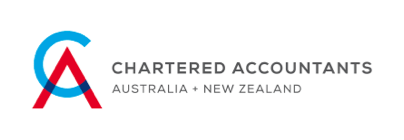In this article, we look at all things financial reporting from what it is to how the laws and regulations will affect you and your business in Australia.
Financial reporting is a critical component of the Australian business environment, as it ensures transparency, accountability, and effective decision-making for businesses, investors, regulators, and the wider community.
Allen Audit & Advisory have established themselves as trusted financial auditors, offering clients services such as AFSL Audits and more to clients across Australia and New Zealand. Read about AFSL Compliance today. So what are you waiting for? Contact us today.
What is financial reporting?
Financial reporting is the process of compiling, analysing, and presenting financial information about a business’s income, resource usage, and cash flow. It serves as a tool for business owners and investors to make informed decisions about managing and investing in the business. By examining the allocation of resources and the flow of money, financial reporting helps assess the overall financial health and performance of the business.
What are the financial reporting requirements?
In Australia, while all businesses should maintain financial records, certain types of companies are subject to additional reporting requirements and must prepare and lodge financial reports with the Australian Securities and Investments Commission (ASIC). ASIC states that businesses must lodge reports when:
There are large amounts of money involved or:
- The general public has invested funds in the company, or
- The company exists for charitable purposes only and is not intended to make a profit. See charities registered with the ACNC if your company is a charity registered with the Australian Charities and Not-for-Profits Commission.
Section 292 of the Corporations Act 2001 (Corporations Act) requires the following entities to prepare financial reports:
- public companies
- companies limited by guarantee (except small companies limited by guarantee)
- all large proprietary companies that are not disclosing entities (Are you a large or small proprietary company?)
- small proprietary companies that have one or more crowd-sourced funding shareholders at any time during the year.
The following entities may also be required to prepare financial reports:
Financial reports typically include the following components:
- Statement of Financial Position
- Statement of Comprehensive Income
- Statement of Changes in Equity
- Statement of Cash Flows
- Notes
- Directors’ Declaration
- Directors’ Report
- Auditor’s Report
These financial statements must be prepared in compliance with applicable accounting standards and provide the necessary disclosures to ensure transparency and a comprehensive understanding of the entity’s activities and financial position. Companies should take into account ASIC’s latest media releases for areas of focus and seek expert assistance when necessary (e.g., for complex valuations).
When lodging financial reports with ASIC, they should be accompanied by Form 388. Listed entities are required to lodge their financial reports with the Australian Securities Exchange (ASX), which then forwards them to ASIC’s register to fulfil lodgement requirements. ASIC employs compliance programs to ensure that entities meet their obligations under the Corporations Act.
ASIC’s public register provides access to financial reports. You can find a specific company’s financial report, by performing a company name search on Organisations & Business Names at ASIC Connect.
In general, small proprietary companies are not required to prepare or submit financial statements to ASIC, except for foreign-controlled small proprietary companies under certain conditions. These companies are not allowed to offer shares or run investment schemes offered to the public.
How to write a financial report
Writing a financial report in Australia involves the preparation and lodgment of various documents as required by the Corporations Act and the Australian Securities and Investments Commission (ASIC). This guide will outline the necessary components of an annual financial report and provide information on how to lodge these documents.
Financial report lodgment deadlines:
Section 319 of the Corporations Act mandates that disclosing entities or registered managed investment schemes must lodge their financial reports within three months after the end of the financial year. All other companies have a deadline of four months after the end of the financial year. Financial reports are still required if the company has not made a profit or traded during the financial year.
Charity financial reporting timelines:
The Annual Financial Statements are due at different times for different charities. The due date depends on a charity’s reporting period.
A charity’s AIS and financial report (if required) must be submitted within six months of the end of the charity’s reporting period.
The two most common reporting due dates are:
31 December for charities that report to a regular financial year (1 July to 30 June)
30 June for charities that report to a calendar year (1 January to 31 December).
How to lodge financial reports:
You can lodge your company’s financial reports online using Form 388 Copy of financial statements and reports. You are exempt from lodging with ASIC if you lodge with ASX, NSX, SIM VSE, or SSX.
Company officeholders, registered agents, and auditors can lodge online through their respective portals after registering for access. To ensure timely lodgment, register for online access and create an account as soon as possible (registration is a one-time process).
b) Lodging using Standard Business Reporting (SBR):
If your financial, accounting, or payroll software is SBR-enabled, you can lodge through the Standard Business Reporting (SBR) Program.
In summary, writing a financial report in Australia requires the preparation and lodgement of various documents in accordance with the Corporations Act and ASIC regulations. Ensure that you comply with the deadlines and utilise the appropriate online portals to lodge your financial reports.
Allen Audit & Advisory can audit your financial reports
At Allen Audit & Advisory, we specialise in conducting financial reviews, offering valuable insights and actionable recommendations to improve your business operations. Our audit reviews, also known as financial reviews, focus on areas such as debt collection, stock management, recording sales, payroll processes, and financial statement close processes.
Our one-off financial and process reviews provide a deeper understanding of your organisation, enabling us to become more involved in the day-to-day running of your business. After thorough analysis, we suggest incremental changes and work alongside your company to implement these improvements.
With our extensive experience across various industries, we have encountered numerous challenges and solutions in businesses of all sizes. Our auditors recognise the unique nature of each business and tailor their processes accordingly to ensure optimal results. Contact us today to find out how we can help you.








